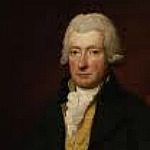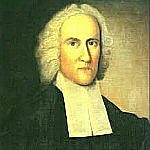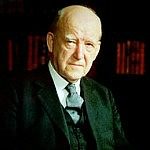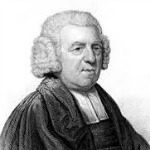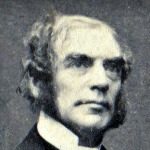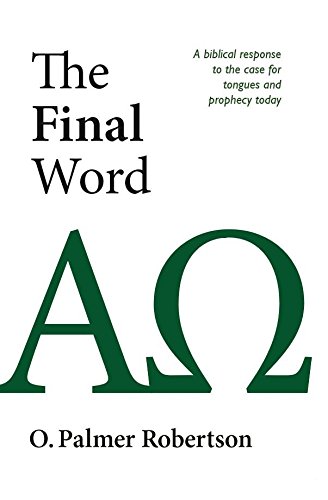Quotes about Bible-Interpretation-Holy_Spirit
It is not the work of the Spirit to tell you the meaning of Scripture, and give you the knowledge of divinity, without your own study and labour, but to bless that study, and give you knowledge thereby… To reject study on pretence of the sufficiency of the Spirit, is to reject the Scripture itself.
A Puritan Golden Treasury, compiled by I.D.E. Thomas, by permission of Banner of Truth, Carlisle, PA. 2000, p. 143.
Before and after you read the Scripture, pray earnestly that the Spirit who wrote it may interpret it for you, keep you from unbelief and error, and lead you into the truth.
As it is difficult to convey an idea of color to the blind, or of music to the deaf, so it is difficult to describe to a natural man the peculiar perceptions of one whose eyes have been opened by the Spirit. And the difficulty is not diminished but increased by the fact, that he has a kind of knowledge which is common to him with the true believer, and which is too apt to be mistaken for that which the Gospel requires. Perhaps the nearest approach that we can make to an explanation may be by asking you to conceive of a man who sees, but has no sense of beauty, or of a man who hears, but has no sense of harmony; just such is the case of a natural man, who sees the truth without perceiving its spiritual excellence, and on whose ear the sound of the Gospel falls without awakening music in his soul. Saving knowledge is not a knowledge of the dead letter or outward form of the Gospel, but a knowledge of the truth in “the light, and lustre, and glory of it;” “gustful knowledge” (Thomas Halyburton), which has in it a relish of the truth as excellent: “O taste and see that the Lord is good.”
The simple and external demonstration of the Word of God ought, indeed, to suffice fully for the production of faith, did not our blindness and perversity interfere. But such is the propensity of our minds to vanity that they can never adhere to the truth of God, and such is their dullness that they are always blind even to his light. Hence, without the illumination of the Holy Spirit the Word has no effect.
The testimony of the Spirit is superior to reason. For as God alone can properly bear witness to His own words, so these words will not obtain full credit in the hearts of men, until they are sealed by the inward testimony of the Spirit… For though [Scripture] in its own majesty has enough to command reverence, nevertheless, it then begins truly to touch us when it is sealed in our hearts by the Holy Spirit.
No man has a right to say, as some are in the habit of saying, “The Spirit tells me that such or such is the meaning of a passage.” How is he assured that it is the Holy Spirit, and not a spirit of delusion, except from the evidence that the interpretation is the legitimate meaning of the words?
The Spirit breathes upon the Word and brings the truth to sight.
I am acknowledging that [the Bible] is not an ordinary Book I am about to read but a supernatural, and, therefore, I need the assistance of its Author.
It may be thus described: A true sense of the divine excellency of the things revealed in the Word of God, and a conviction of the truth and reality of them thence arising… [This spiritual light] reveals no new doctrine, it suggests no new propositions to the mind, it teaches no new thing of God, or Christ or another world not taught in the Bible, but only gives a due apprehension of those things that are taught in the Word of God.
I believe that the Holy Spirit is indispensable for an interpreter’s reaching a correct interpretation of the text. The Spirit must work in the interpreter’s heart so that he or she welcomes (1 Cor. 2:14) the biblical message that one’s egotistic, sinful heart otherwise hates with a vengeance.
The Unity of the Bible, Zondervan, 1992, p. 111. Get this book!
We must never separate the Spirit and the Word. The Spirit speaks to us through the Word; so we should always doubt and query any supposed revelation that is not entirely consistent with the Word of God. Indeed the essence of wisdom is to reject altogether the term “revelation” as far as we are concerned, and speak only of “illumination.” The revelation has been given once and for all, and what we need and what by the grace of God we can have, and do have, is illumination by the Spirit to understand the Word.
The Bible cannot be understood simply by study or talent; you must count only on the influence of the Holy Spirit.
Nobody who has not the Spirit of God sees a jot of what is in the Scriptures. All men have their hearts darkened, so that, even when they can discuss and quote all that is in Scripture, they do not understand or really know any of it… The Spirit is needed for the understanding of all Scripture and every part of Scripture.
The doctrine of illumination does not mean that believers can unlock every theological secret (Deut. 29:29), or that we do not need godly teachers (Eph. 4:11–12). It also does not preclude us from disciplining ourselves for the purpose of godliness (1 Tim. 4:8) or from doing the hard work of careful Bible study (2 Tim. 2:15). Yet we can approach our study of God’s Word with joy and eagerness—knowing that as we investigate the Scriptures with prayerfulness and diligence, the Holy Spirit will illuminate our hearts to comprehend, embrace, and apply the truths we are studying.
Strange Fire, Copyright © John MacArthur, 2013, p. 226.
Get this book!
The internal testimony of the Holy Spirit illuminates the believer so that he knows that the Scriptures are the Word of God. The biblical basis for this clarity is derived from two sources. First, the words of Scripture are self-attesting because they claim to be from God (2 Tim. 3:16; 2 Pet. 1:20–21). Second, the Holy Spirit’s dynamic power applies the truth of Scripture, resulting in a confident assurance in the Word itself (1 Cor. 2:4–16)… That does not mean that all who hear or read believe (Rom. 10:14–21), but it does mean that those who believe do so because of the convicting and illuminating work of the Holy Spirit.
God’s Word by John MacArthur and Richard Mayhue taken from Biblical Doctrine by John MacArthur and Richard Mayhue, copyright 2017, Crossway Books, a division of Good News Publishers, Wheaton Illinois 60187, www.crosswaybooks.org. Page 104.
What the illuminating work of the Spirit does provide is a receptivity to the authority of God’s Word, a conviction that it is the truthful Word of God, and a capacity aided by the Holy Spirit to discern the true meaning of the Word of God.
God’s Word by John MacArthur and Richard Mayhue taken from Biblical Doctrine by John MacArthur and Richard Mayhue, copyright 2017, Crossway Books, a division of Good News Publishers, Wheaton Illinois 60187, www.crosswaybooks.org. Page 105.
God must open the eyes of our understanding before we can truly know and rightly interpret His truth. His truth is available only to those with a regenerate spirit and in whom His Spirit dwells, for only the Spirit can illumine Scripture. Just as the physically blind cannot see the sun, the spiritually blind cannot see the Son. Both lack proper illumination.
Apart from the Holy Spirit, the Bible will utterly fail to penetrate and transform the human heart. With the Spirit of God comes illumination – true understanding of what has been written. Every believer has the Holy Spirit, the One who inspired the writers of Scripture, and without His illuminating ministry to us, the truth of Scripture could not penetrate our hearts and minds.
Only the Holy Spirit can show us spiritual truth. Anyone can hear the facts, study other people’s teaching, and gain something of an intellectual understanding about the meaning of Scripture. But apart from the Holy Spirit, the Bible will utterly fail to penetrate and transform the human heart. With the Spirit of God comes illumination – true understanding of what has been written. Every believer has the Holy Spirit, the One who inspired the writers of Scripture, and without His illuminating ministry to us, the truth of Scripture could not penetrate our hearts and minds… However, the Holy Spirit’s illuminating ministry cannot replace conscientious study. They work together. We should keep in mind that God Himself requires that we be diligent (2 Tim. 2:15). As we explore Scripture carefully and thoroughly, the Holy Spirit uses whatever tools we acquire, whatever godly wisdom we expose ourselves to, as the means to illuminate our hearts.
Unless we read the Word of God, we cannot be instructed by the Spirit, and unless we are instructed by the Spirit, we cannot become godly and effective servants. To put it another way, loving the Word, learning from the Word, and living out the Word are interlocked in God’s plan for our spiritual growth.
How to Read a Christian Book, 2001, p. 46. Used by permission of Baker, a division of Baker Book House Company.
If we slight the reading of the God-breathed Word, the Holy Spirit is handicapped with dull tools for teaching, reproof, correction, and instruction in right doing. Why then should we be surprised that we fall short of godly character, feel spiritually incompetent in Christian witness, and fail at good works? The loop of learning takes us back to the basics. If we want the qualities associated with spiritual maturity, we must be avid readers of the God-breathed Word and serious students of Scripture.
How to Read a Christian Book, 2001, p. 52. Used by permission of Baker, a division of Baker Book House Company.
When I do not understand a passage of the Word of God, I lift up my heart to the Lord that He would, by His Holy Spirit, instruct me. I expect to be taught, although I do not fix the time and the manner it should be.
The Autobiography of George Muller, 1984, p. 157. All quotations taken from books published by Whitaker House are used with permission of the publisher. Whitaker House books are available at Christian bookstores everywhere. Get this book!
In general, He guides and directs His people, affording them, in answer to prayer, the light of His Holy Spirit, which enables them to understand and to love the Scriptures.
O let us never forget; that the wonderful things contained in the divine law can neither be discovered nor relished by the “natural man,” whose powers of perception and enjoyment are limited in their range to the objects of time and sense. It is the divine Spirit alone who can lighten the darkness of our sinful state, and who can enable us to perceive the glory, the harmony, and moral loveliness which everywhere shine forth in the pages of revealed truth (John Morison).
It is as impossible to understand the Scriptures without the Spirit’s help as it is to read a sundial without the sun (Derek Prime and Alistair Begg).
On Being a Pastor, Moody Press, 2004, p. 78. Get this book!
All study of the Scriptures is fruitless without divine illumination. “There must be Spirit in me as there is Spirit in the Scriptures, before I can see anything,” remarked the sixteenth-century Puritan Richard Sibbes (Derek Prime and Alistair Begg).
On Being a Pastor, Moody Press, 2004, p. 121. Get this book!
There is a difference of viewpoint between the Christian and the nonChristian, between the man who has been renewed by the Spirit of God and the man who has not. That difference in viewpoint has a vital bearing upon the question of the clarity of the Scriptures. The spiritual man has, through his regeneration, a basis for comprehension which the natural man lacks. Given equal mental gifts and powers, therefore, the spiritual man has a key, as it were, which the other lacks to unlock the meaning of biblical statements (Paul Woolley).
The Relevancy of Scripture in The Infallible Word, edited by N.B. Stonehouse and Paul Woolley, P&R, 1978, p. 201-202, Used by Permission.
Our ultimate conviction that the words of the Bible are God’s words comes only when the Holy Spirit speaks in and through the words of the Bible to our hearts and gives us an inner assurance that these are the words of our Creator speaking to us… Those who are Christ’s sheep hear the words of their great Shepherd as they read the words of Scripture, and they are convinced that these words are in fact the words of their Lord… They hear their Creator’s voice speaking to them in the words of Scripture and realize that the book they are reading is unlike any other book (Wayne Grudem and Jeff Purswell).
Bible Doctrine: Essential Teachings of the Christian Faith, Zondervan, www.zonderan.com, 1999.
God has ordained that the eye-opening work of His Spirit always be combined with the mind-informing work of His Word. His aim is that we see the glory of His Son (and be changed). So He opens our eyes when we are looking at the Son – and not at soaps or sales. The work of the Spirit and the work of the Word always go together in God’s way of true spiritual self-revelation. The Spirit’s work is to show the glory and beauty and value of what the mind sees in the Word.
Wonderful Things from Your Word, Sermon, January 11, 1998, www.DesiringGod.org. Used by Permission.
The primary work of the Holy Spirit in [Bible study] is to abolish the pride and arrogance that keep us from being open to the Scriptures. The Holy Spirit makes us teachable because He makes us humble. He causes us to rely wholly on the mercy of God in Christ for our happiness so that we are not threatened if one of our views is found to be wrong. The person who knows Himself finite and unworthy, and who thus rejoices in the mercy of God, has nothing to lose when his ego is threatened.
If our pride has not been crucified by the Holy Spirit, the Bible will be a wax nose and we will call it foolish or mold it to fit our own natural desires.
How the Spirit Helps Us Understand, 1 Corinthians 2:14-16, May 20, 1984. www.DesiringGod.org. Used by Permission.
The work of the Spirit is not to tell us what the [Bible] means. That we must determine by a disciplined study of the text. The Spirit inspired these writings and He does not short-circuit them by whispering in our ear what they mean. When we pray for His help we do not pray that He will spare us the hard work of rigorous reading and reflection. What we pray is that He would make us humble enough to welcome the truth. The work of the Spirit in helping us grasp the meaning of [the Bible] is not to make study unnecessary but to make us radically open to receive what our study turns up, instead of twisting the text to justify our unwillingness to accept it.
How the Spirit Helps Us Understand, 1 Corinthians 2:14-16, May 20, 1984. www.DesiringGod.org. Used by Permission.
The work of the Holy Spirit in the process of interpretation is not to add information, but to give to us the discipline to study and the humility to accept the truth we find without twisting it.
[Illumination is] the Holy Spirit’s enabling of Christians generally to understand, to recall to mind, and to apply or grasp the Scriptures they have studied.
Read the Bible with earnest prayer for the teaching and the help of the Holy Spirit. Here is the rock on which many make shipwreck at the very outset. They do not ask for wisdom and instruction, and so they find the Bible a dark book, and carry nothing away from it. You should pray for the Spirit to guide you into all truth. You should beg the Lord Jesus Christ to “open your understanding,” as He did that of his Disciples.
Yes, we have a responsibility to vote! “When the righteous increase, the people rejoice, but when a wicked man rules, people groan” (Prov. 29:2). Because we do live in a republic where our voice counts (“We the people”), we need to know what is most important according to God’s will and determine the politician that best will uphold it. It’s impossible to say that religion and politics do not mix. Being “salt and light” does not exempt us from the political world. We should influence it. When Christians choose not to vote we open a vacuum to unrighteous legislation that now provides a greater opportunity for evil to thrive and be imposed on the will of the people, including ourselves and future generations. In the Bible, Joseph and Daniel heavily influenced governing leaders and it greatly benefitted God’s people. Likewise, we are called in Galatians 6:10 to “do good to all people.” Why would we want men and women in the office that will introduce and perpetuate unrighteousness in our society? With the blood-bought freedoms we enjoy as a country, thanks to our military heroes, we cannot sit back and refuse to exercise our rights only to further individuals in the office that will not submit to Divine Law or the Constitution.
I argue that the primary reason we misinterpret the Bible is not because the Holy Spirit has failed to do His work, but because we have failed to do ours.
Taken from: Essential Truths of the Christian Faith by R. C. Sproul, Copyright © 1992 (Sproul), p. xix, Used by permission of Tyndale House Publishers, Inc. All rights reserved.
If you do not understand a book by a departed writer you are unable to ask him his meaning, but the Spirit, who inspired Holy Scripture, lives forever, and He delights to open the Word to those who seek His instruction.
The Word of God apart from the Spirit of God will be of no use to you. If you cannot understand a book, do you know the best way to reach its meaning? Write the author and ask him what he meant. If you have a book to read and you have the author always accessible, you need not complain that you do not understand it. The Holy Spirit has come to abide with us forever. Search the Scriptures, but cry for the Spirit’s light and live under His influence.
We must depend upon the Spirit in our preparations. Is this the fact with us all? Are you in the habit of working your way into the meaning of texts by the guidance of the Holy Spirit? Every man that goes to the land of heavenly knowledge must work his passage thither; but he must work out his passage in the strength of the Holy Spirit, or he will arrive at some island in the sea of fancy, and never set his foot upon the sacred shores of the truth. You do not know the truth, my brother, because you have read "Hodge’s Outlines", or "Fuller’s Gospel worthy of all Acceptation"; or "Owen on the Spirit", or any other classic of our faith. You do not know the truth, my brother, merely because you accept the Westminster Assembly’s Confession, and have studied it perfectly. No, we know nothing till, we are taught, of the Holy Ghost, who speaks to the heart rather than to the ear.
The only authoritative interpreter of a book is its author!
Special Revelation II, November 8, 2006, www.enjoyinggodministries.com. Used by Permission.
The very same Holy Spirit who led these men to write, longs to lead us today so we can understand. Without the Holy Spirit, the Bible is like an ocean which cannot be sounded, heavens which cannot be surveyed, mines which cannot be explored, and mysteries beyond unraveling. We must – we must – yield to the leadership of the Holy Spirit.
The Bible is a supernatural book and can be understood only by supernatural aid.
While Scripture uses public language and possesses a meaning that is accessible on one level by application of linguistic and grammatical tools, the deeper existential appropriation of that meaning by the individual, in a way that involves trust in God and true belief in the personal reality and significance of doctrines that are nonsensical to the limited human mind, such as the Trinity or the Incarnation, is only available to the mind enlightened by the Holy Spirit.
Theologian of the Word, Tabletalk, Oct. 2004, p. 15, Used by Permission (Trueman makes this point regarding the theology of John Owen, Works, vol. 4, p. 85).
The natural man may have excellent notions in divinity, but God must teach us to know the mysteries of the Gospel after a spiritual manner. A man may see the figures upon a dial, but he cannot tell how the day goes unless the sun shines; so we may read many truths in the Bible, but we cannot know them savingly, till God by His Spirit shines upon our soul… He not only informs our mind, but inclines our will.
A Puritan Golden Treasury, compiled by I.D.E. Thomas, by permission of Banner of Truth, Carlisle, PA. 2000, p. 143.
We do not understand and then obey: that is instruction. We obey by faith, and then we understand: that is illumination.
Live Like a King, Published by Kregel Publications, Grand Rapids, MI. 1995, p. 131. Used by Permission. All Rights Reserved.
Our desire is that the Holy Spirit, who is the Divine Revealer and Interpreter of Christ and His truth, may impart to your hearts a sober, spiritual and sanctifying receptivity of His Word – abasing self, and exalting Christ! Our intention is to unfold and illustrate the Lord Jesus Christ in the relation in which He stands to His people – to unveil His glory, beauty, and fullness – to define the close bond of union that unites to Him all His people – and to bring you into a more personal realization of what Christ is to you, and of what you are to Christ.
Unaccompanied by the power of the Holy Spirit, the Bible is inactive, inoperative; a mere dead letter!
Apart from the Spirit, [the Bible] cannot quicken, nor sanctify, nor comfort. It may be read constantly, and searched deeply, and known accurately, and understood partially, and quoted appropriately. Yet, left to its own unassisted power, “it comes but in word only” (1 Thes. 1:5), producing no hallowing, no abiding, no saving results.
The Holy Spirit enlightens a person, not by giving an added content of knowledge, but by mysteriously operating on his heart so that he can see the revelation already given. The image used in Scripture is of removing a veil (2 Cor. 3:15-16)… The truth was there before them all the time, only they were prevented from seeing it.
The Holy Spirits Illumination of Scripture. Used by Permission from www.mountainretreatorg.net.
The Spirit’s work is to drive home to the heart and conscience what the mind understands.
The Holy Spirits Illumination of Scripture. Used by Permission from www.mountainretreatorg.net.
The scriptural doctrine of illumination gives no encouragement at all to those who desire to find a secret higher meaning in Scripture. It is also no encouragement to those who look to the word of the Spirit to give them a personal private revelation.
The Holy Spirits Illumination of Scripture. Used by Permission from www.mountainretreatorg.net.
The Spirit makes it possible for our efforts to expound the Bible to bear fruit, but His work does not eliminate the need for careful, logical exegesis. In the design of God, the Spirit and the human mind are meant to work together, each performing its own proper function.
The Holy Spirits Illumination of Scripture. Used by Permission from www.mountainretreatorg.net.
The doctrine of the Spirit’s illumination should be an encouragement to ordinary people that they can read the Bible with profit. Contrary to what the Roman church claimed at the time of the Reformation, we do not need some external human authority to present us with a sound interpretation of the Bible. And contrary to the fears of some people in the church, we do not need to have advanced degrees in Bible and theology to be able to read and understand God’s Word. Right understanding of the Bible is not dependent upon what the world considers great learning. As the Lord Jesus said, the truths of Scripture are often concealed from the wise and learned and revealed to babes. With the aid of the Spirit, all of God’s people can understand His Word.
The Holy Spirits Illumination of Scripture. Used by Permission from www.mountainretreatorg.net.
We may preach with great eloquence, we may have unanswerable arguments, but if we are preaching to the lost, we must remember that they are people whose minds have been blinded by the god of this age. Our most eloquent appeals will make no impact unless a Sovereign God causes His light to dawn upon their hearts. Our approach in preaching should not be to say merely that we are offering something beneficial that you our hearer can and should take up at any time. We have a more disquieting message. We are to tell the lost, “You are slaves. You are blind. You cannot even understand what we are saying unless God in His mercy enables you.” The Lord must illumine. Our preaching can succeed only “in demonstration of the Spirit and of power” (1 Cor. 2:4). That must be the starting point for preaching the Lord God will honor.
The Holy Spirits Illumination of Scripture. Used by Permission from www.mountainretreatorg.net.




